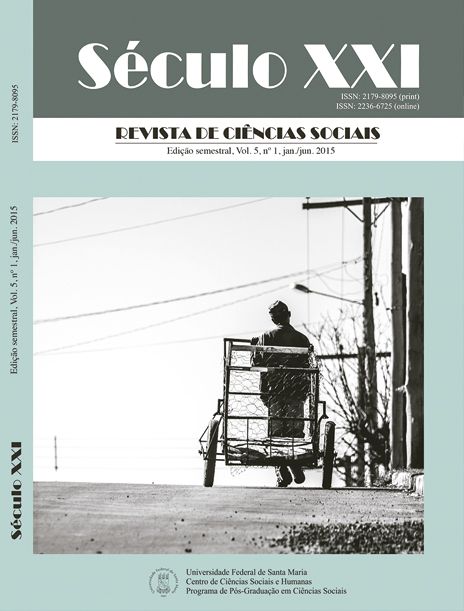Construction worlds: between empirical social theory and ungerian social theory
DOI:
https://doi.org/10.5902/2236672519660Keywords:
empirical social theory, political science, Roberto Mangabeira Unger, experimentalism, rational choice theoryAbstract
This paper is organized in two parts. The first one deals with the assumptions of Empirical Social Theory and its direct link in Political Science reflections. Achieves a critique about those internalist markers, emphasizing the consequences of this way of thought inasmuch as politics get embedded from other fields of human knowledge. It also analyzes the assumptions applied by the school of rational choice and the school of neo-institutionalism. The second part discusses the Social Theory offered by Roberto Mangabeira Unger, a Brazilian theorist, and his anti-naturalistic theoretical assumptions. His social theory is distinct both from empirical social theory and from Marxism. It introduces an authentic interpretation about politics, which holds a potential to change the paradigm of the theory and practice, fighting against Right-Hegelianism and promoting the role of the human imagination in political action without surrender to a fatalistic fate. It is advocated that Ungerian Social Theory holds potential to strike the hostility of the desert, as Hannah Arendt told.Downloads
Downloads
Published
How to Cite
Issue
Section
License
Authors who publish in this journal agree with the following terms:
1. Authors keep the copyrights and allow the journal the right of first publishing, having the paper simultaneously licensed by Creative Commons Attribution License that allows the sharing of the article – copyright recognized - and first publishing in this journal.
2. The journal is allowed to require the copyrights transfer, allowing the article to be used under noncommercial purposes, including the right to send the paper to Free Access or Paid databanks, not assuming the obligation to pass on the value charged from users to the authors.
3. Authors are allowed to take additional contracts separately for nonexclusive distribution of the paper’s version published in this journal (e.g. publishing in institutional repository or as book chapter), recognizing the copyright and first publishing in this journal.







